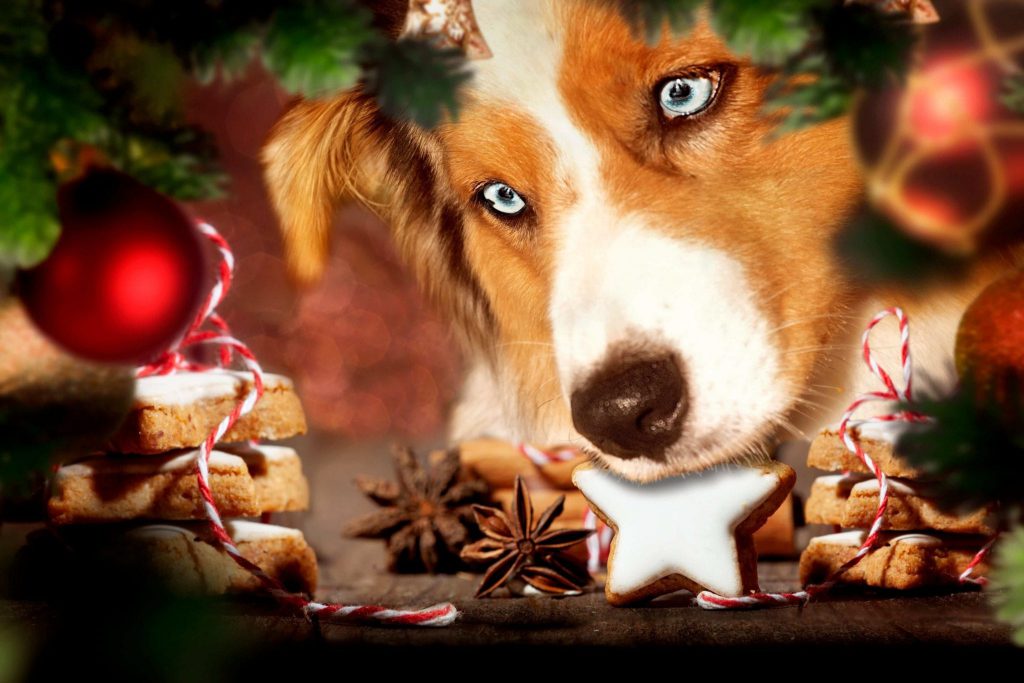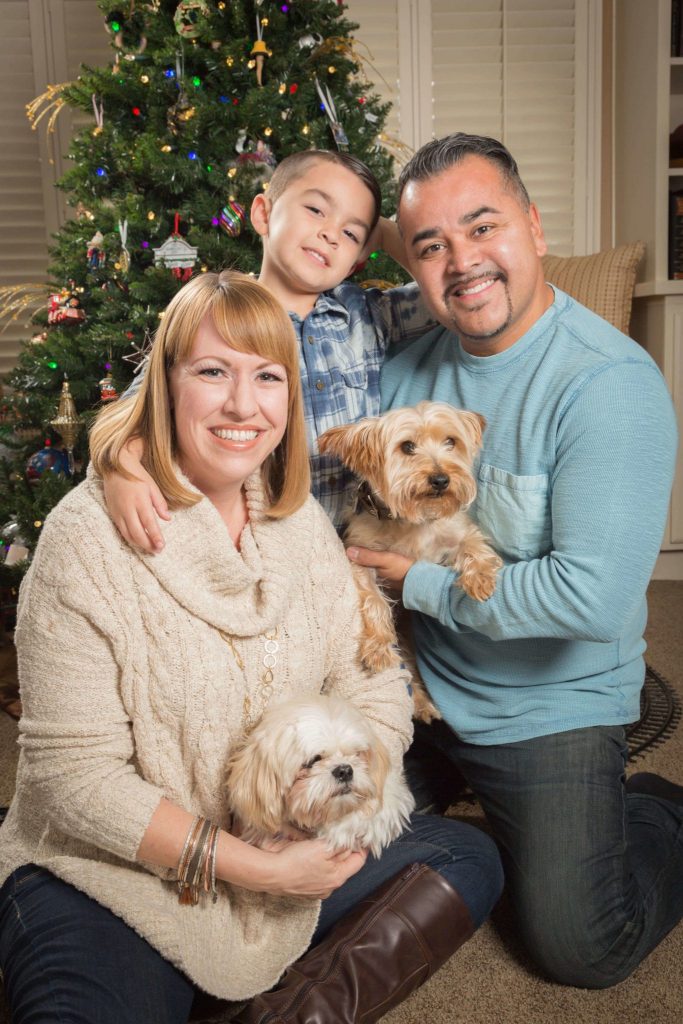There are many items that are popular around holiday time that can be hazardous to dogs. Having guests and visitors in the home can also pose a threat to pets. Here are some tips to keep your dogs safe to enjoy the holidays.

Food items:
There are several food items that can be dangerous or toxic for your pets to consume.
- Foods that are rich, spicy or fatty can cause gastrointestinal (stomach and intestine) upset and lead to vomiting, diarrhea, and a decrease in appetite. Pets are prone to getting pancreatitis, inflammation of the pancreas, which in some cases requires hospitalization and can even be life-threatening.
- Any candy that is sweetened with the artificial sweetener called xylitol. Even a small amount of xylitol can cause a life-threatening hypoglycemia (low blood sugar) leading to seizures and in severe cases can cause liver failure.
- Chocolate is toxic to dogs. Depending on the type and amount of chocolate consumed, chocolate can cause gastrointestinal upset, heart problems and in the worst case neurologic signs, such as seizures. Consuming large amounts of chocolate can be fatal. Baking chocolate and cocoa are the most threatening to pets. If your dog consumes chocolate, they should be taken to a veterinarian on an emergent basis.
- Bones from meat can also cause serious issues to the gastrointestinal tract as well as potential damage to teeth and mouth of your dog. Bones can also cause obstruction in the esophagus (the tube that connects mouth to the stomach) which can be lead to choking.

Decorations:
- Many dogs are interested in ornaments and if they are consumed can cause damage to the gastrointestinal tract. Ribbons, tinsel and ornaments are a common hazard.
- Dogs also like to play with string items and, and if swallowed, these are very dangerous as they can cause a blockage in your dog's intestine. They often anchor to the wall of the stomach or intestine and require surgical removal, and in some cases can be life-threatening.

Plants:
Poinsettia has been commonly thought of as being very toxic to dogs. This is mostly a myth. However, contact or ingestions of poinsettia leaves can cause vomiting, diarrhea, nausea and irritation to the skin and eyes.
- Holly is mildly toxic to dogs and can lead to vomiting, diarrhea, and your dog being depressed.
- Christmas tree water and mistletoe can also cause serious gastrointestinal upset and can lead to vomiting, diarrhea and nausea.

Guests and visitors:
- Inform your guests and visitors, particularly children, to be cautious around your pets and to not give them anything to eat that may potentially be hazardous. Be careful of different items that may be accessible for your pet to eat.
- Many pets can become stressed from having visitors. Stress can lead to gastrointestinal upset, anxiety and depression.

You can buy our vet prescribed supplements here:
Glucosamine and Hemp Oil for Dogs – ‘Senior Large Breed’ Dog Arthritis Supplement – Soft Chew Senior Dog Vitamins
[/et_pb_text][et_pb_image src="https://vetnaturals.com/wp-content/uploads/2017/04/amazon-btn-150.png" url="https://www.amazon.com/Veterinary-Naturals-Hemp-Joint-Supplement/dp/B075NNTZK7" url_new_window="on" _builder_version="3.12.2"][/et_pb_image][et_pb_text _builder_version="3.12.2"]
Resources:
Household Hazards. American Veterinary Medical Association.
Murphy, KF. “Plant Intoxications”. British Small Animal Veterinary Congress. Veterinary Information Network, 2007.
Richardson, J, Rishniw M. “Common Household Hazards”. Veterinary Information Network, 2017.
Poinsettia. Pet Poison Helpline.
“Toxic and Non-Toxic Plants: Holly.” ASPCA.








